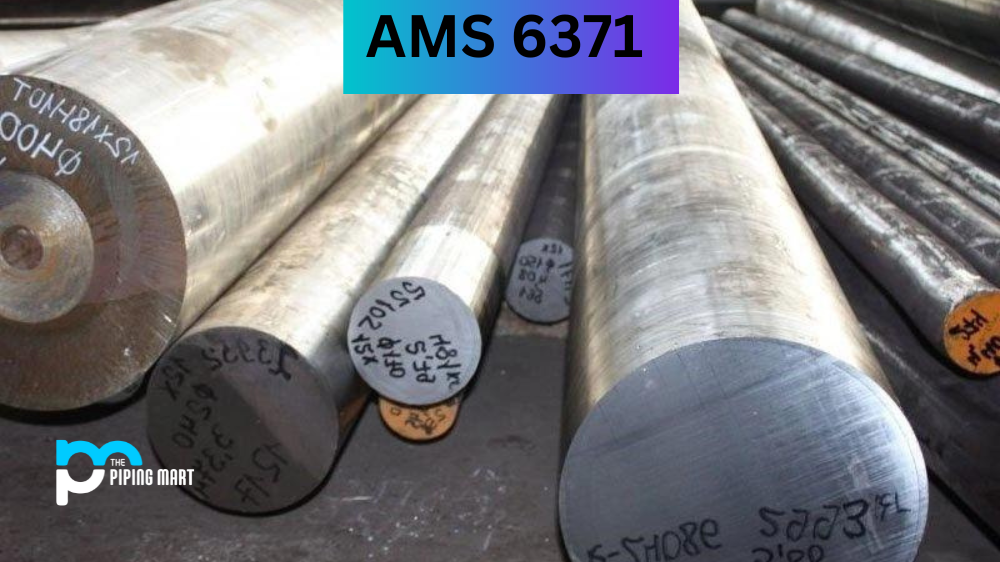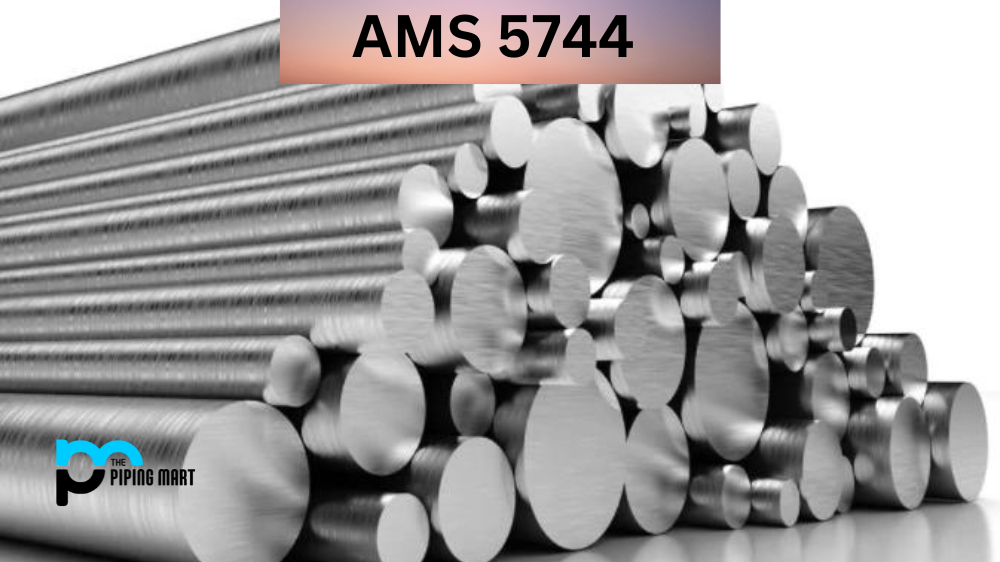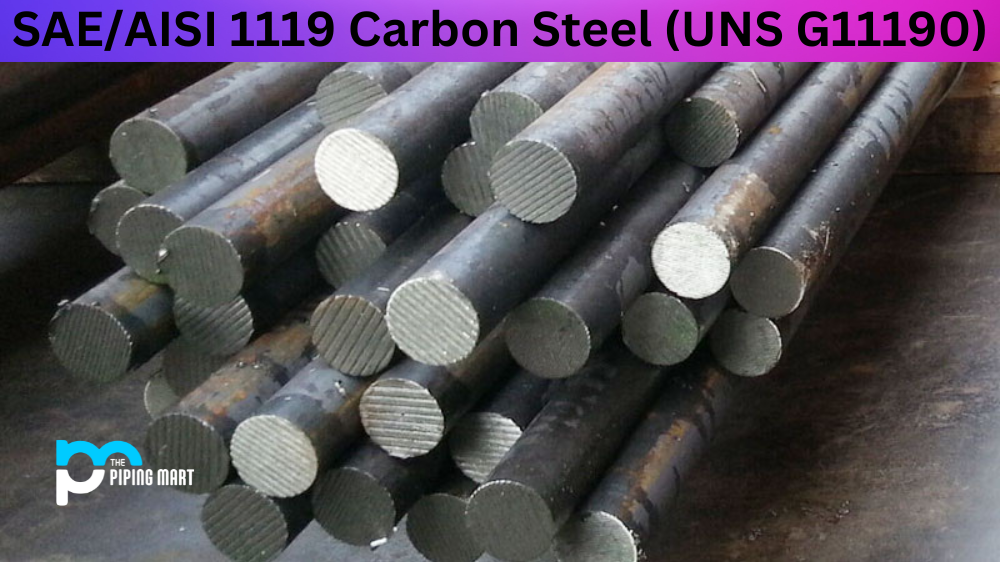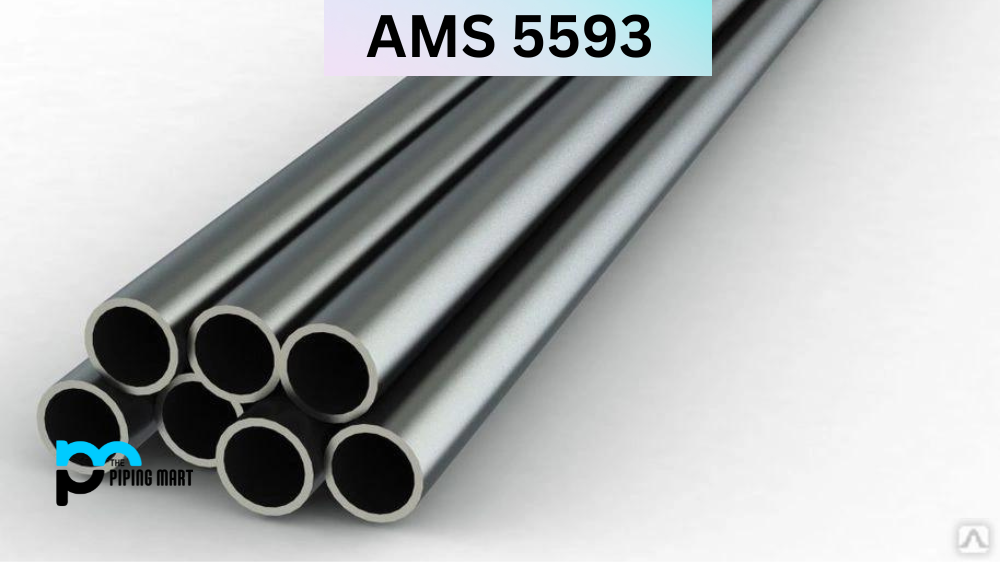When manufacturing mechanical parts, choosing a suitable material is crucial. One of the options available in AMS 6371. This carbon alloy steel offers numerous benefits and characteristics that make it ideal for various applications. This blog post will delve deeper into AMS6371’s composition, physical and mechanical properties, uses, hardness, and heat treatment.
What is AMS 6371?
AMS (Aerospace Material Specification) 6371 (also known as AISI 4130 Alloy Steel) is a carbon alloy steel used primarily in the aerospace industry for its high strength and excellent resistance against fatigue and impact. It is also referred to as 4330 mod steel or chromium-nickel-molybdenum alloy steel.
What Form is AMS 6371 Available at Piping Mart?
- Alloy Steel AISI 4130 Bars
AMS 6371 Composition
AMS6371 includes a high percentage of chromium, nickel, and molybdenum. Its chemical composition is as follows: Carbon (0.28-0.33%), Manganese (0.40-0.60%), Phosphorus (max 0.025%), Sulfur (max 0.025%), Silicon (0.15-0.35%), Chromium (0.80-1.10%), Nickel (1.65-2.00%), Molybdenum (0.40-0.50%), and Iron (balance).
| Element | Content (%) |
|---|---|
| Iron, Fe | 97.03 – 98.22 |
| Chromium, Cr | 0.80 – 1.10 |
| Manganese, Mn | 0.40 – 0.60 |
| Carbon, C | 0.280 – 0.330 |
| Silicon, Si | 0.15 – 0.30 |
| Molybdenum, Mo | 0.15 – 0.25 |
| Sulfur, S | 0.040 |
| Phosphorous, P | 0.035 |
AMS 6371 Physical Properties
The physical properties of AMS6371 include a density of 7.85 g/cm³, a melting point of 1427°C (2600°F), and a thermal conductivity of 40.4 W/make It also has excellent fatigue strength, impact resistance, and toughness.
| Properties | Metric | Imperial |
|---|---|---|
| Density | 7.85 g/cm3 | 0.284 lb/in³ |
| Melting point | 1432°C | 2610°F |
AMS 6371 Mechanical Properties
The mechanical properties of AMS6371 include a tensile strength of 1538-1705 MPa, a yield strength of 1310-1450 MPa, an elongation of 10-15%, and a reduction in the area of 40-50%. It also has a high hardness rating, ideal for high-stress applications.
| Properties | Metric | Imperial |
|---|---|---|
| Tensile strength, ultimate | 560 MPa | 81200 psi |
| Tensile strength, yield | 460 MPa | 66700 psi |
| Modulus of elasticity | 190-210 GPa | 27557-30458 ksi |
| Bulk modulus (Typical for steel) | 140 GPa | 20300 ksi |
| Shear modulus (Typical for steel) | 80 GPa | 11600 ksi |
| Poissons ratio | 0.27-0.30 | 0.27-0.30 |
| Elongation at break (in 50 mm) | 21.50% | 21.50% |
| Reduction of area | 59.6 | 59.60% |
| Hardness, Brinell | 217 | 217 |
| Hardness, Knoop (Converted from Brinell hardness) | 240 | 240 |
| Hardness, Rockwell B (Converted from Brinell hardness) | 95 | 95 |
| Hardness, Rockwell C (Converted from Brinell hardness, value below normal HRC range, for comparison purposes only.) | 17 | 17 |
| Hardness, Vickers (Converted from Brinell hardness) | 228 | 228 |
| Machinability (Annealed and cold drawn. Based on 100% machinability for AISI 1212 steel.) | 70 | 70 |
AMS 6371 Equivalents
| AMS 6348 | AMS 6371 | ASTM A331 | ASTM A829 | DIN 1.7218 |
| AMS 6350 | AMS 6373 | ASTM A506 | MIL S-18729 | UNI 25 CrMo 4 |
| AMS 6351 | AMS 6374 | ASTM A507 | MIL S-6758 | JIS SCCrM 1 |
| AMS 6360 | AMS 6528 | ASTM A513 | SAE J1397 | JIS SCM 2 |
| AMS 6361 | AMS 7496 | ASTM A519 | SAE J404 | SS 2225 |
| AMS 6362 | ASTM A29 | ASTM A646 | SAE J412 | B.S. CDS 110 |
| AMS 6370 | ASTM A322 | ASTM A752 | AFNOR 25 CD 4 (S) | SAE J770 |
AMS 6371 Uses
Due to its high strength and excellent fatigue resistance, AMS 6371 is commonly used to manufacture aircraft components, landing gear parts, and aerospace equipment. It is also used in the oil and gas industry for various applications, including drilling equipment and pipelines.
AMS 6371 Hardness
AMS 6371 has a Rockwell hardness rating of C32 maximum, making it one of the hardest carbon alloy steels available. Its high hardness rating means it is resistant to wear and tear, making it ideal for high-stress applications.
AMS 6371 Heat treatment
To increase its mechanical properties, AMS 6371 undergoes heat treatment by either tempering or quenching and tempering. Tempering involves heating the steel to a specific temperature and letting it cool slowly, while quenching involves rapidly cooling the steel in a liquid. Tempering, quenching, and tempering improve the steel’s strength, toughness, and hardness.
Conclusion:
AMS6371 material is a carbon alloy steel with high strength, excellent fatigue resistance, impact resistance, and toughness. Its composition, physical and mechanical properties, and hardness rating make it ideal for high-stress aerospace and oil and gas applications. As a material for mechanical parts, AMS 6371 provides reliability, longevity, and efficiency. When considering material options for your manufacturing needs, consider the many benefits of AMS 6371.

Meet Bhavesh, a seasoned blogger with a wealth of knowledge and experience. From metal products manufacturing to retail, Bhavesh has a diverse background in various industries and is dedicated to sharing his insights and expertise with readers.




